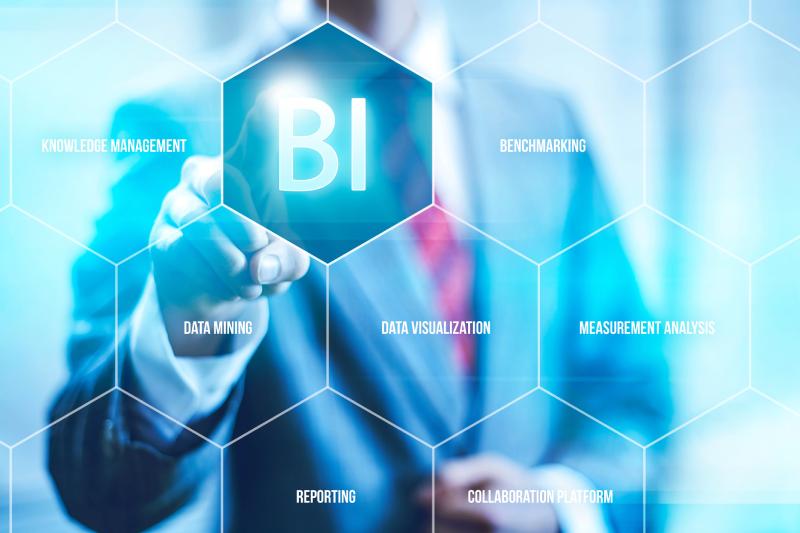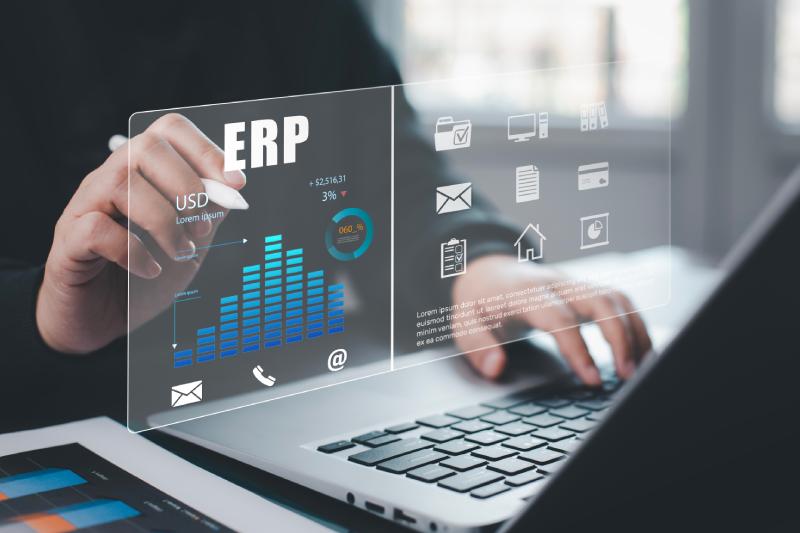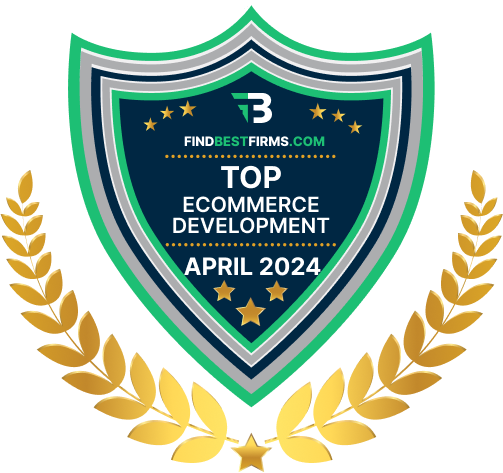
Staying competitive in today’s business landscape is becoming increasingly more reliant on moving on from outdated, time-consuming, manual tasks and embracing the world of automation and technology. In the digital marketplace especially, failing to embrace the different technological tools and advances will likely leave your business stagnant while your competitors take advantage of a whole new world of online customers and opportunities.
Successful B2B e-commerce goes far beyond simply buying and selling online. If you’re the owner of a B2B e-commerce company, you need to make sure you’re using the right tools to manage your operations effectively as well. One of the most crucial tools for any B2B e-commerce company is an Enterprise Resource Planning (ERP) system.
In this guide, we’ll explore everything you need to know about ERP software for your business and its applications in the e-commerce industry.
Using ERP Software for B2B e-Commerce
Enterprise Resource Planning (ERP) software is a system that helps businesses manage various aspects of their day-to-day operations, such as accounting, inventory management, order management, customer relationship management, human resources, and more, all in one place.
Essentially, ERP software is a tool that businesses use to centralize their operations and streamline their workflows. By using an ERP system, companies can eliminate manual processes, reduce the risk of errors, and increase efficiency across all areas of the organization. For B2B e-commerce companies, an ERP system can help by automating processes such as order management and inventory management, reducing manual labor, and increasing efficiency.
How ERP Integrations Create Value for B2B Companies
ERP systems offer numerous advantages to B2B organizations. Here are some of the ways ERP integrations can create value for your B2B company:
- Optimized Business Procedures
An ERP system allows for a centralized database that facilitates the automation of tasks, eliminating redundancies and errors. With multiple business functions on a single platform, businesses can mitigate the time and effort required to manage their operations.
- Advanced Teamwork
ERP systems can enable businesses to improve teamwork across different departments and teams. As the system integrates various business functions into a singular platform, employees can share data and communicate more effectively. For instance, sales teams can access real-time data on inventory levels, pricing, and customer orders, allowing them to provide better customer service.
- Availability of Real-time Data
ERP systems facilitate real-time data integrations, allowing companies to make well-informed decisions promptly. Businesses can use the system to generate real-time data reports on inventory levels, sales data, and customer orders – which will help to provide valuable insights to build their performance and sales.
- Improved Customer Care
ERP systems play a crucial role in enhancing customer care services. It allows companies to access valuable insights into their customers’ preferences and behaviour. With this data, B2B businesses can personalize their services and build customer loyalty.

Types of ERP Software
In the world of B2B e-commerce, it is important to choose the right type of ERP software to ensure that you are getting the best results possible.
There are three main types of ERP software: generalist, modular, and ERP suites. Generalist ERP software offers basic functionality, while modular ERP software allows users to select specific modules that meet their business needs. ERP suites, on the other hand, provide a complete suite of modules for comprehensive business management.
In addition to the types of ERP software, there are different deployment options available, including on-premise ERP, cloud-based ERP, and hybrid ERP. An on-premise ERP refers to an ERP system that is installed and hosted on your company’s servers and infrastructure. This means that you will have complete control over the hardware and software used to run the system. In contrast, cloud-based ERP is hosted remotely by a third-party provider and accessed through the Internet. This eliminates the need for you to maintain the hardware and software in-house and allows for easier scalability.
Hybrid ERP, on the other hand, is a combination of both on-premise and cloud-based deployment. This allows you to keep certain critical functions on-premise while leveraging the scalability and accessibility of cloud-based ERP for other functions. This approach offers the best of both worlds, providing the security and control of an on-premise deployment while also taking advantage of the flexibility and scalability of cloud-based ERP.
When choosing the type of ERP software for your B2B e-commerce business, consider factors such as the level of functionality required, the scalability of the system, and the integration requirements.
Custom Software vs. ERP Software
When it comes to choosing and implementing an ERP software solution, you have two primary options available to you: custom software and out-of-the-box software. Both options have their pros and cons, and the decision ultimately comes down to what is best for your business. Regardless of the type of software you choose, it can help your company streamline processes and improve overall productivity. Here are the pros and cons of each software type:
- Custom Software Pros and Cons
Custom software is developed specifically for your business. It takes into account your unique processes, workflows, and requirements. The software is tailored to your specific needs and can be highly customized to fit your business perfectly. However, this level of customization can come at a cost. Custom software is often more expensive than out-of-the-box software and can take longer to develop and implement. Though, if you consider the benefits, you will probably find that the outcomes are well worth the investment.
A major advantage of custom software is that you have complete control over the development process. You can work closely with the software development team to ensure that the software meets your exact specifications and requirements. It can also be more flexible and scalable than out-of-the-box software, allowing you to add new features and functionality as your business grows and evolves.
There are also some potential disadvantages of custom software. Since it is developed specifically for your business, it may be difficult to find qualified developers who are experienced with your specific technology stack. An ERP expert is needed as your staff may find it more challenging to maintain and update in the future. With a partner like Terracor, you get access to our experienced team of professionals that can help you find the most suitable custom integration services to align with your specific budget and goals.
- Out-of-the-Box Software Pros and Con
Out-of-the-box software, also known as off-the-shelf software. It is pre-built software that is designed to meet the needs of a wide range of businesses. The software is often less expensive and quicker to implement than custom software since it is already developed and ready to use.
An advantage of out-of-the-box software is that it is designed to be used by many different businesses, and it is often easier to maintain. However, a disadvantage of out-of-the-box software is that it may not be a perfect fit for your business. Since it is designed to meet the needs of many different businesses, it may not be tailored to your specific requirements. Your business might have to modify your processes to fit the software rather than the other way around. The less flexible and scalable software means you will probably be unable to add new features and functionality as your business grows and evolves.
Is it Time to Upgrade Your Existing e-Commerce Platform to an Integrated Solution?
As e-commerce continues to grow and evolve, it is becoming increasingly important for businesses to have a strong online presence. One of the key components of an online presence is a profitable e-commerce platform. The platform you use needs to handle a high volume of transactions and provide a seamless user experience. Most importantly, your ERP system needs to integrate with other business systems. If your business is currently using a basic or outdated e-commerce platform, it may be time to consider upgrading to an integrated solution.
Why You Should Upgrade Your e-Commerce Platform
Is it time to upgrade your e-commerce platform to an integrated solution? Your business will receive a range of benefits, including improved efficiency, the reduction of errors, and the ability to provide customers with a better customer experience. Additionally, an integrated platform can provide real-time visibility into inventory levels, order status, and customer data, which can help improve decision-making and provide a better customer experience.
B2B Strategies for a More Customer-Centric Supply Chain
In the past, supply chain management has often been focused on cost reduction and operational efficiency. However, as customer expectations continue to rise, it’s becoming increasingly important for businesses to adopt a more customer-centric approach to their supply chain strategies. Here are some B2B strategies to help you achieve this:
- Emphasize Collaboration
Collaboration between suppliers and customers can lead to better communication and a greater understanding of customer needs. Businesses should foster a collaborative culture that encourages open communication and transparency.
- Use Data to Your Advantage
The use of data can help businesses gain insights into customer behavior and preferences. By using data analytics, businesses can identify trends and patterns in customer behavior and use this information to make more informed decisions.
- Prioritize Flexibility
Customer needs can change quickly, so businesses need to remain agile and flexible in their supply chain operations. Businesses should have contingency plans in place to respond to unexpected changes in demand or supply.
- Embrace Technology
Technology can be a powerful tool for creating a more customer-centric supply chain. Businesses should invest in ERP software and technologies that enable real-time tracking, automated inventory management, and predictive analytics.
By adopting these strategies, businesses can create a more customer-centric supply chain that delivers value to customers while reducing costs.
Using Technology to Improve Your B2B Purchasing Processes
One of the key advantages of using an e-commerce platform for B2B transactions is the ability to streamline your business processes. Technology can automate many of the manual tasks associated with B2B transactions, which can save you time and reduce errors. Here are some ways you can use technology to improve your B2B purchasing processes:
- Implement an Online Catalog
One of the first steps in creating a B2B e-commerce platform is to create an online catalog of your products or services. In your catalog, you can include detailed product descriptions, pricing information, and images. You should also market the catalog to ensure customers have easy access to find the products they need and place orders.
- Offer Online Ordering and Payment
To make it even easier for your customers to place orders, you should offer online ordering and payment options. With this feature, your customers can place orders 24/7, without having to call or email your sales team. You can also integrate your e-commerce platform with your ERP system to automate order processing and invoicing.
- Use Automation to Manage Orders
Another way to streamline your purchasing processes is to use automation to manage orders. You can set up automated workflows and send automated notifications to customers when their orders have been shipped.
- Implement a Customer Portal
By providing your customers with a self-service portal, you can reduce the workload on your customer service team and give your customers more control over their orders. A customer portal is a secure online platform where your customers can log in to view their order history, track shipments, and more.
Important Customer Metrics You Should Track to Maximize Your ROI
To ensure the success of your B2B e-commerce platform, it’s important to track and analyze key metrics. These metrics are often related to customer behavior and purchasing habits. By understanding these metrics, you can identify areas to optimize your platform for maximum ROI. Here are some important customer metrics you should track:
- Conversion Rate
Your conversion rate is the percentage of visitors to your e-commerce platform who make a purchase. By tracking your conversion rate, you can identify areas where your platform may be causing visitors to abandon their carts and take steps to improve the user experience.
- Average Order Value
Your average order value is the average amount spent by customers on each order. By tracking this metric, you can identify opportunities to increase sales by offering discounts or promotions to customers who are close to meeting a minimum order value.
- Customer Lifetime Value
Your customer lifetime value is the total amount of revenue you can expect to earn from a single customer throughout their relationship with your business. By tracking this metric, you can identify high-value customers and tailor your marketing and sales efforts to retain their business.
Take Your e-Commerce Strategy to the Next Level with Terracor’s Help
If you’re looking to take your e-commerce strategy to the next level, Terracor Business Solutions can help. By working with Terracor Business Solutions, you can leverage our knowledge and experience to improve your e-commerce operations and stay ahead of the competition. Whether you’re just starting or looking to scale your business, Terracor Business Solutions can help you achieve your goals and drive success in the digital marketplace.
Contact Terracor today to establish a profitable, well-rounded B2B eCommerce platform.




